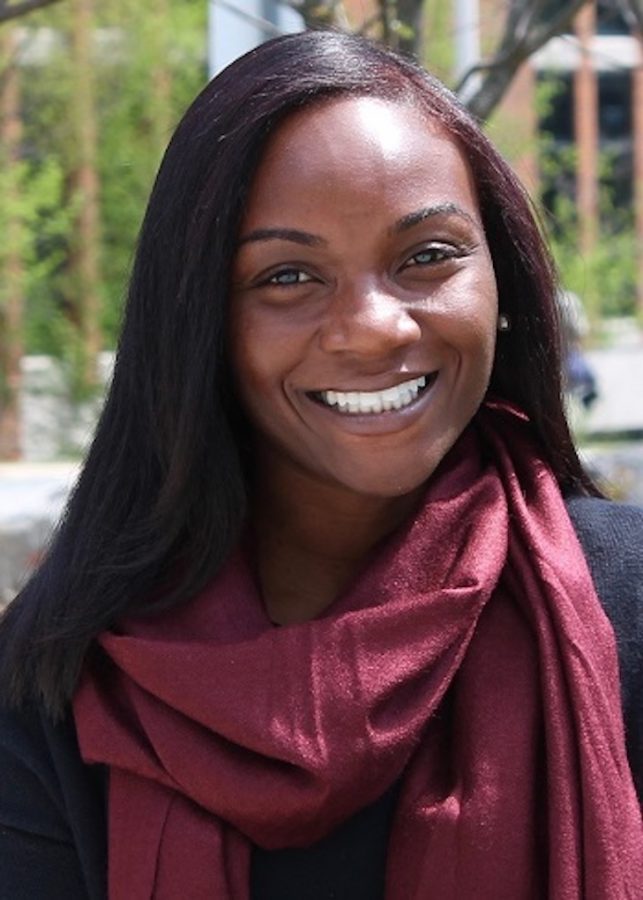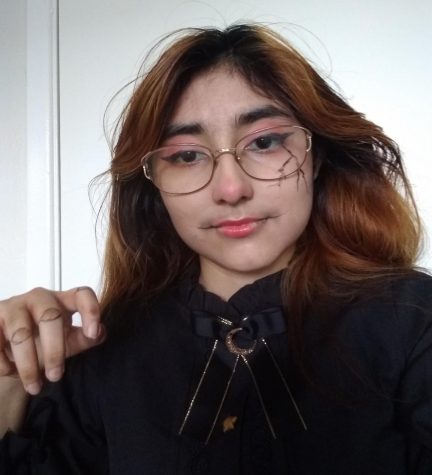Dr. Kizzmedia Corbett
In honor of Black History Month, every day The Cardinal will feature a prominent and historical Black American, living or dead, who has worked toward change, advancement, and/or world peace. Some of them are heroes, and some are unsung heroes, who deserve recognition, and have made a contribution to society.
February 12, 2021
Dr. Kizzmekia Corbett was born on January 26, 1986, and is an American viral immunologist at the Vaccine Research Center (VRC) at the National Institute of Allergy and Infectious Diseases, National Institutes of Health (NIAID NIH) based in Bethesda, Maryland.
Corbett was born in Hurdle Mills, North Carolina to Rhonda Brooks. She grew up in Hillsborough, North Carolina, where she had a large family of step-siblings and foster siblings.Corbett went to Oak Lane Elementary School and A.L. Stanback Middle School. Her fourth grade teacher, Myrtis Bradsher, recalls recognizing Corbett’s talent at an early age and encouraging Kizzy’s mother to place her in advanced classes.
In 2004, Corbett graduated from Orange High School in Hillsborough, North Carolina. In 2008, Corbett received a B.S. in biological sciences and sociology from the University of Maryland, Baltimore County (UMBC), as a student in the Meyerhoff Scholars Program. In 2014, Corbett received a PhD in microbiology and immunology from the University of North Carolina at Chapel Hill.
Appointed to the VRC in 2014, she is currently the scientific lead of the VRC’s Coronavirus Team, with research efforts aimed at propelling novel coronavirus vaccines, including a COVID-19 vaccine. In December 2020, the Institute’s Director Anthony Fauci said: “Kizzy is an African American scientist who is right at the forefront of the development of the vaccine.”
Her research aims to uncover mechanisms of viral pathogenesis and host immunity. She specifically focuses on development of novel vaccines for coronaviridae. Her early research considered the development of Severe Acute Respiratory Syndrome (SARS) and Middle East Respiratory Syndrome (MERS) vaccine antigens. During this time, she identified a simple way to make spike proteins that are stabilized in a conformation that renders them more immunogenic and manufacturable, in collaboration with researchers at Scripps Research Institute and Dartmouth College.
Corbett has worked to rebuild trust with vaccine hesitant populations such as the Black community. For example, she presented education about the COVID-19 vaccine development to Black Health Matters in October 2020. Her race has been a focus of government outreach; after a study released by the NAACP and others revealed that only 14% of black Americans believe a COVID-19 vaccine will be safe, NIAID Director Fauci was explicit: “the first thing you might want to say to my African American brothers and sisters is that the vaccine that you’re going to be taking was developed by an African American woman.”
In recognition of her work on the vaccine, Orange County, North Carolina named January 12, 2021 “Dr. Kizzy Corbett Day”.


